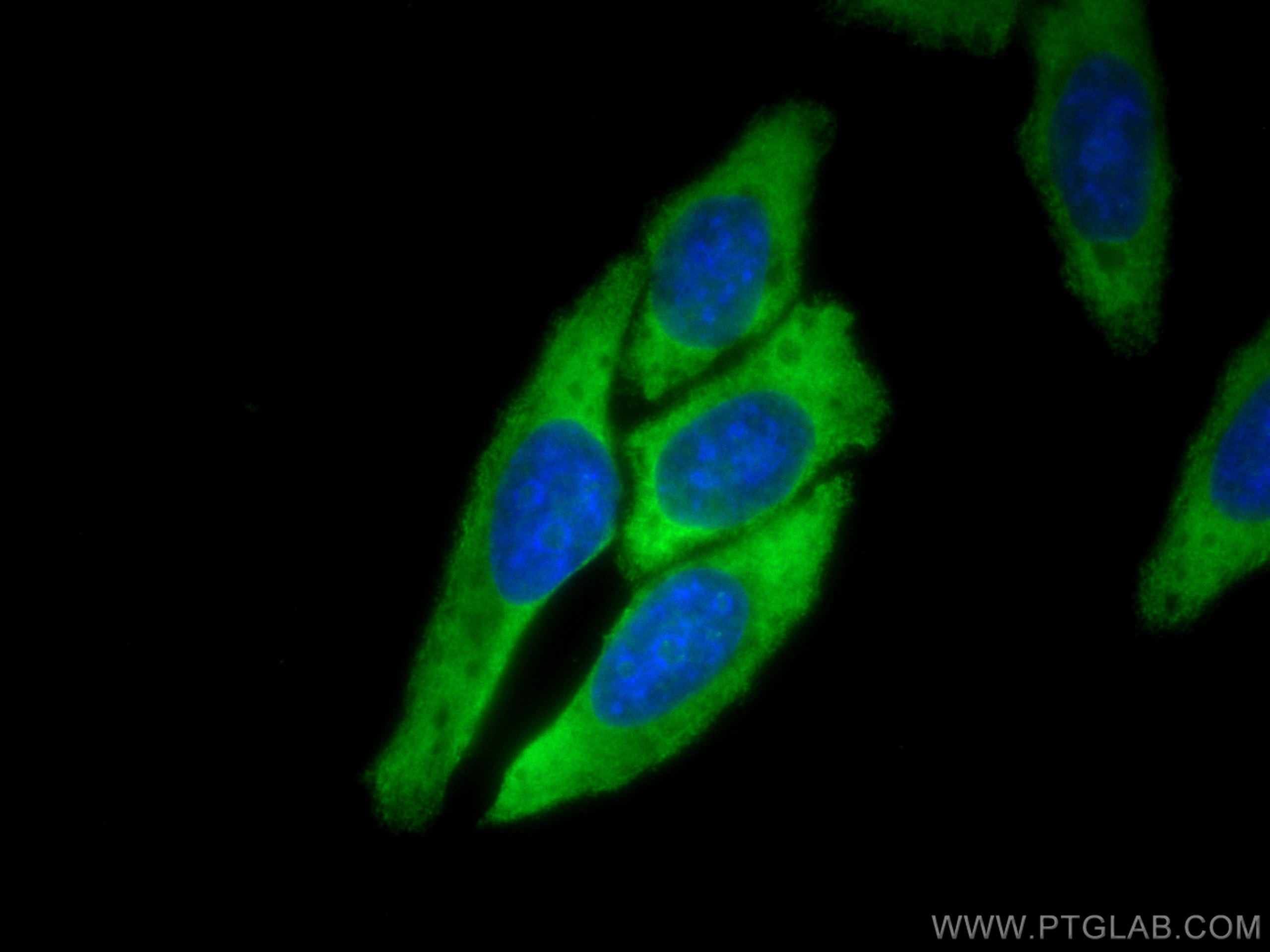Tested Applications
| Positive IF/ICC detected in | HepG2 cells |
Recommended dilution
| Application | Dilution |
|---|---|
| Immunofluorescence (IF)/ICC | IF/ICC : 1:50-1:500 |
| It is recommended that this reagent should be titrated in each testing system to obtain optimal results. | |
| Sample-dependent, Check data in validation data gallery. | |
Product Information
CL488-66482 targets EIF2A/CDA02 in IF/ICC applications and shows reactivity with Human, mouse, rat samples.
| Tested Reactivity | Human, mouse, rat |
| Host / Isotype | Mouse / IgG1 |
| Class | Monoclonal |
| Type | Antibody |
| Immunogen |
CatNo: Ag22041 Product name: Recombinant human EIF2A protein Source: e coli.-derived, PET28a Tag: 6*His Domain: 238-585 aa of BC011885 Sequence: IASTDVDKTGASYYGEQTLHYIATNGESAVVQLPKNGPIYDVVWNSSSTEFCAVYGFMPAKATIFNLKCDPVFDFGTGPRNAAYYSPHGHILVLAGFGNLRGQMEVWDVKNYKLISKPVASDSTYFAWCPDGEHILTATCAPRLRVNNGYKIWHYTGSILHKYDVPSNAELWQVSWQPFLDGIFPAKTITYQAVPSEVPNEEPKVATAYRPPALRNKPITNSKLHEEEPPQNMKPQSGNDKPLSKTALKNQRKHEAKKAAKQEARSDKSPDLAPTPAPQSTPRNTVSQSISGDPEIDKKIKNLKKKLKAIEQLKEQAATGKQLEKNQLEKIQKETALLQELEDLKLGI Predict reactive species |
| Full Name | eukaryotic translation initiation factor 2A, 65kDa |
| Calculated Molecular Weight | 65 kDa |
| Observed Molecular Weight | 65 kDa |
| GenBank Accession Number | BC011885 |
| Gene Symbol | EIF2A |
| Gene ID (NCBI) | 83939 |
| RRID | AB_2934466 |
| Conjugate | CoraLite® Plus 488 Fluorescent Dye |
| Excitation/Emission Maxima Wavelengths | 493 nm / 522 nm |
| Form | Liquid |
| Purification Method | Protein G purification |
| UNIPROT ID | Q9BY44 |
| Storage Buffer | PBS with 50% glycerol, 0.05% Proclin300, 0.5% BSA, pH 7.3. |
| Storage Conditions | Store at -20°C. Avoid exposure to light. Stable for one year after shipment. Aliquoting is unnecessary for -20oC storage. |
Background Information
EIF2A, also named as CDA02, MSTP004 and MSTP089, belongs to the WD repeat EIF2A family. It functions in the early steps of protein synthesis of a small number of specific mRNAs. EIF2A, an alternative initiator tRNA-binding protein, has a key role in the translation of HCV mRNA during HCV infection, in turn promoting eIF2a phosphorylation by activating the eIF2a kinase PKR.
Protocols
| Product Specific Protocols | |
|---|---|
| IF protocol for CL Plus 488 EIF2A/CDA02 antibody CL488-66482 | Download protocol |
| Standard Protocols | |
|---|---|
| Click here to view our Standard Protocols |




